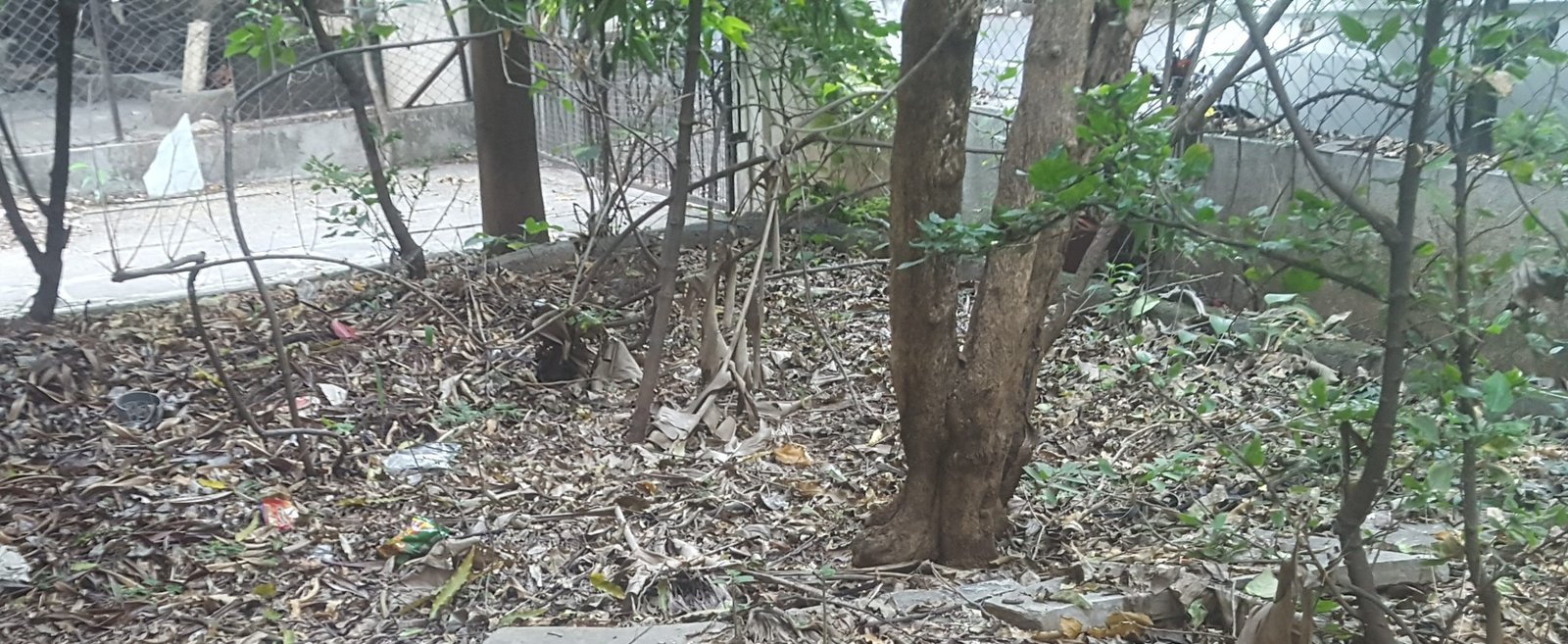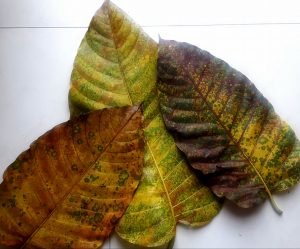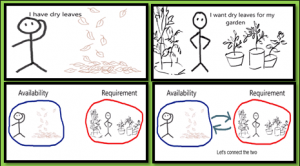Come winter, and falling leaves is a big headache for majority of city dwellers.
What If I say, after reading this blog, you will be glad to have all those dry leaves around?
Yes, no kidding. I can do that 😊
Stay with me, and I will convince you.
What is mulching?
Mulching is layer of organic matter on the soil. Fallen leaves is a type of mulch; a very effective and very cost-effective.
In forests, leaves fall in winter, stay that way throughout the summer. Rains arrive, leaves decompose, nutrients return to the soil and are made available to plants again, by microbes.
If we all were living in forest, like our ancestors did once upon a time, then I would not need to convince you about mulching. In forest, this layer of leaves is not a challenge.
It becomes a problem in cities and towns where space is less, soil is covered with buildings, roads, footpaths and other built structures.
How mulching with dry leaves helps
- Leaves form a layer over the soil protecting it from harsh sun, reduces erosion
- Various insects and microbes get protection under these leaves
- It discourages growth of weeds
- It provides soil the required nutrients
- Mulch helps in rainwater harvesting
Leaves form a layer over the soil protecting it from harsh sun. Soil retains moisture
Soil that is exposed to sun loses moisture, becomes hard and compact. Not much life is left in such a soil.
Whereas, soil when covered with mulch, is protected from harsh sun and can retain moisture.
Soil thus not covered, is eroded with heavy rains and wind. Mulching reduces erosion.

Various insects and microbes get protection under these leaves
Mulch provides shelter as well as food to various insects and microbes. They take organic matter as food and convert it into available minerals. They help create a healthy soil ecosystem.
These insects and microbes are helpers for a farmer/ gardener. They grow, they multiply, they work round the clock making sure nutrients available for the plants.
It discourages growth of weeds
Layer of mulch smothers and discourages weed growth to large extent. Even if some weeds do occur, mulching layer makes it easy to uproot them.
It provides soil the required nutrients
Bacteria, fungi, other microbes are necessary for soil health. Rather they are the ones that build our soils.
Organic matter over the soil provides microbes. Plants cannot use nutrients available in the soil as it is. Microbes convert them in the form in which plants can absorb them. Some convert nitrogen in the air, in the form usable by plants.
Without these little helpers, we will not be able to grow food.
When we sweep away leaves, burn them or send them away to dump-yards, we lose valuable organic matter necessary for the soil.
Mulch helps in rainwater harvesting
Mulch in the top soil holds water. Patches with mulch act as rainwater harvesting structures and guess what? It is completely free and almost effort-less.
Divert run-off from your terrace and roof into the mulched patches and done!! Your premises are flood-free and rain water is harvested in your garden.

Rain water from terrace is diverted into mulched garden patch with this simple method. Cut bottom of a plastic bottle and attach it to the pipe. Insert a watering pipe to the other end. Such a simple yet innovative way. Courtesy: Shashikala Dagade, Pune
How to do mulching?
If you have large trees, simply don’t sweep away all the leaves that fall. Leaves enough to cover the soil.
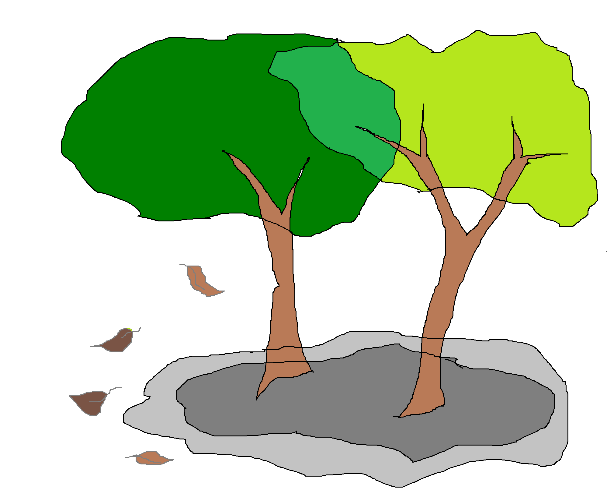
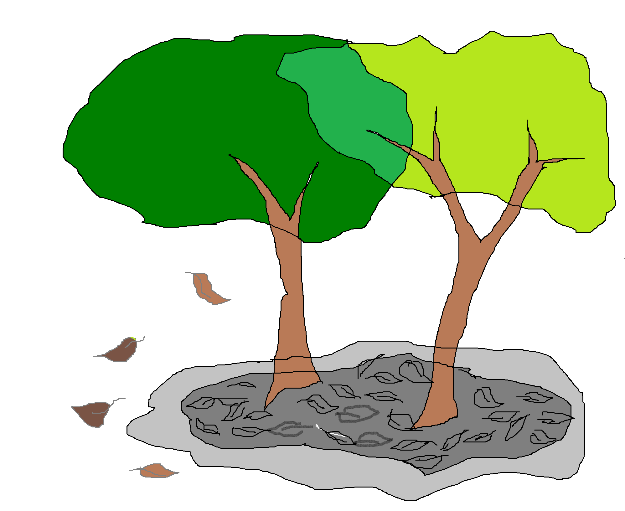
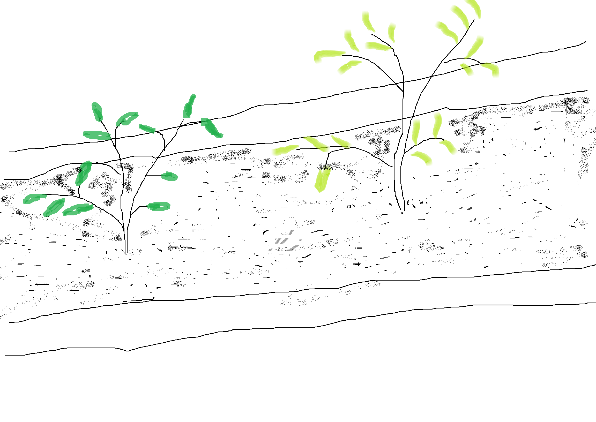
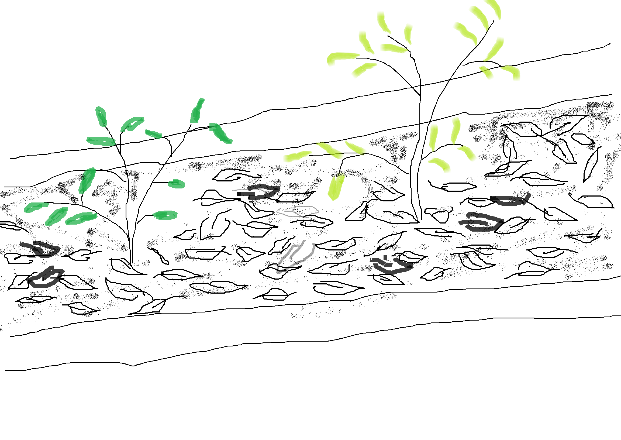
Cover soil in your plant-beds and in your planters with mulch.
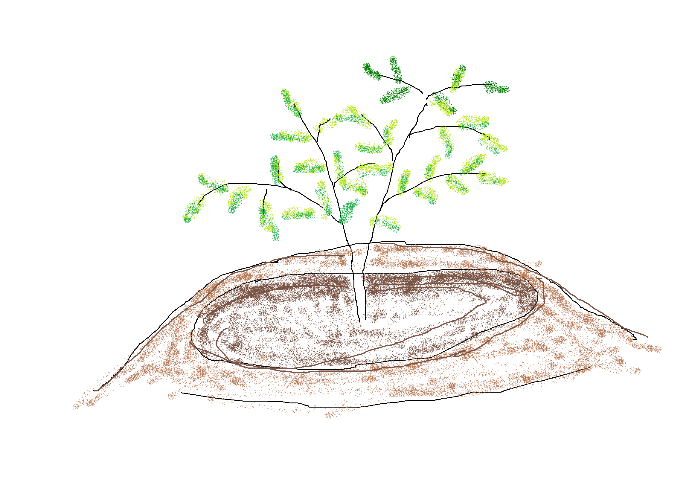

Why is it important to build healthy soils?
I clearly read your mind here. It is fine if you have a garden, right? But what if not? Why should you do mulch if you are not going to do any gardening? How does it matter, if soil is healthy or not, then?
Picture is much bigger here. As per study done by Centre for Science and Environment (CSE), every year, we lose 16 tonnes (16,000 kg) per hectare soil to erosion. Every year we are losing this fertile top soil. With nothing to protect it, soil gets washed away with heavy rains and winds. This soil, along with rain water, enters our dams, streams, rivers and ultimately accumulates in our oceans.
Every year, our dams lose some percentage of their storage capacity. That is, they store less and less water every year.
Streams and rivers, due to this accumulated silt, become shallow increasing chances of floods.
Fertile top soil settles at the ocean bottoms and every year, we are left with less and less fertile soil and hence less crop production.
Aggressive fertilizers are used to make up for this reduces fertility. Toxic chemicals in them start one more vicious cycle, polluting our soils and waters further, for us and our future generations.
- Mulch soils surfaces in the garden
- Mulch soil surface in the planters on terrace/ balcony
- Mulch available soil surface under the tree by roadside
What if you do not have dry leaves?
Don’t worry, your neighbors will be happy to donate some to you. Approach your neighbors, collect leaves in gunny bags and utilize them for mulching. Also encourage your neighbors to do mulching if they are not doing so already.
If you are based in Pune, we have an extensive network of leaf-donors and leaf-takers. Become a member of the group and locate donor nearby.
Drop a mail to pune.brownleaf@gmail.com to be added to the whatsapp groups.
If you wish to create such a network for your city, do get in touch with us at above email id. We will provide you guidance and support to replicate same for your city.
Conclusion
Let’s give clean air, healthy soils for future generations. Let’s act now so that future generations breathe and eat healthy.
Let’s Mulch,
Let’s Compost,
Do not burn dry leaves

